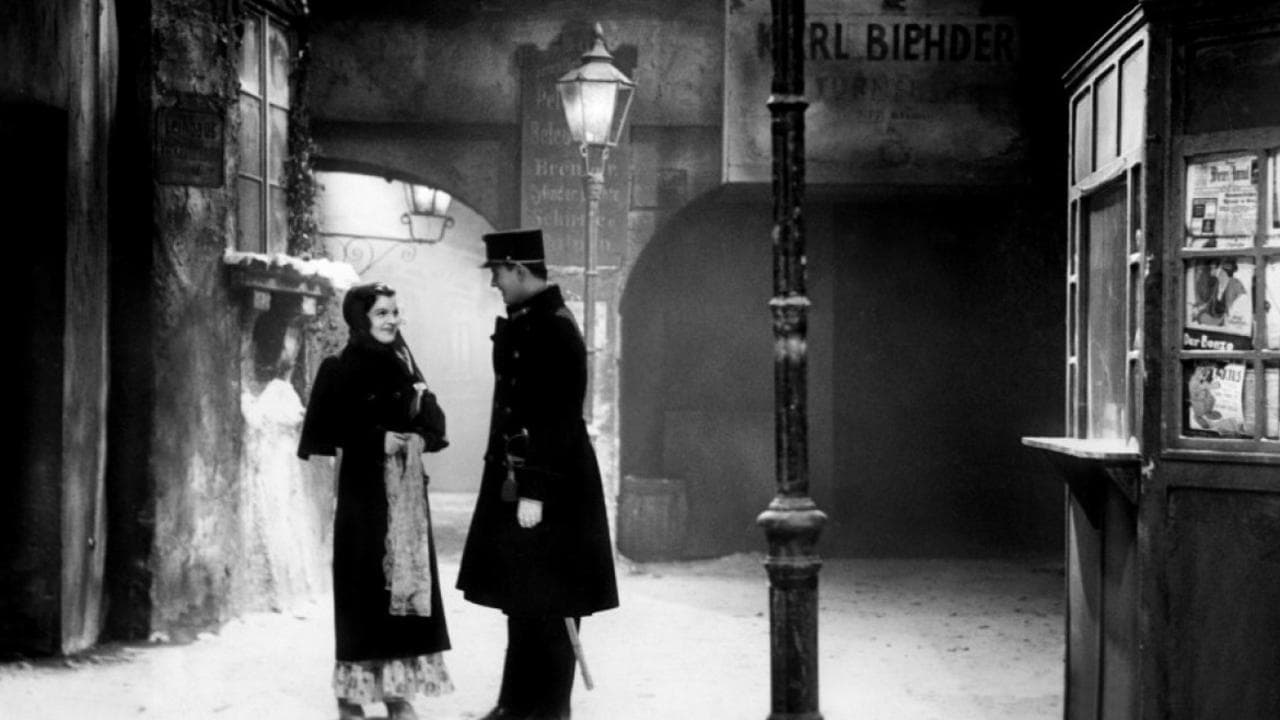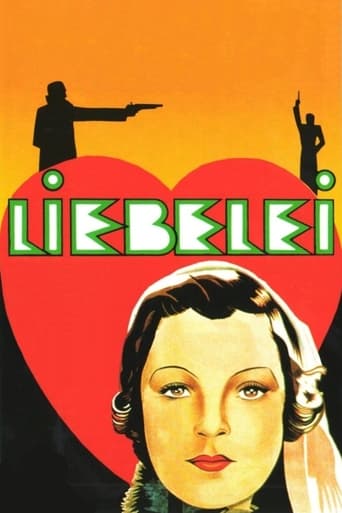

This film was made during the first years of the Reich. When it was was first released, Goebbels had it banned, Popular demand had it reissued but having the Jewish artist ,who contribute it, names removed. This is the first time I ever saw Paul Horbinger, playing a serious role, since The third man.He portrays Wayring, a musician who work in the orchestra pit of the theater he works for. Magda Schneider, who's is very lean for this role, portray his daughter ,Christine, who aspires to be an opera singer.Luise Ullrich,who would appear in a romantic comedy with Paul Horbinger and Heinz Ruhmann in Heimker in Gluck that same year, portrays Her Friend ,very mischievous Mizzi. Wolfgang Liebeniener, who would become a film director under the Nazi's rule at the moment an actor, plays Fritz ,a Lieutenant in the military. Willy Eichberger, who would later be known as Carl Esmond in the United Stated ,portrays Fritz Friend Theo, also a lieutenant.At first I thought Esmond was Gustave Frolic but I rechecked his name. Gustave Grugens portrays a count that I can't really take seriously.Russian Actress Olga Tschechowa , who played in Bellami and three men and a Gas station, Plays His wife the Countess. The thing is that Theo and Mizzi and Christine meet after the opera,when Mizze dropped some opera glasses from the balcony almost hitting Fritz. But Fritz is not their cause he is having an Affair with the countess.He shows up late to the coffee house, where Mizzie and Christine And Theo were having fun , late taking Chrisitne home , while Mizzie and Theo fools around at his apartment. The thing is that Frits and Chrisitne fall in live with each other. She does not know that he had an affair with the countess,Whom he baby sits while the count is on business. The count is a bit suspicious too of his wife cheating on him.Well fritz has to tell the countess that it's off but then the countesses husbands brother goes to his place and tells him whats going on. Chrisitne is auditioning for the chorus at the opera, very poorly, Mizzi and Fritz and Theo are getting ready for what looks like a Christmas party but he's waiting for Christine to show up . Instead Grugens makes a surprise show up demanding a dual. Later Theo demand his commanding officer, portrayed by Paul Otto who would commit suicide with his wife once his Jewish heritage was found out by Goebbels, to call off his friends dual cause he has a girl friend, who does not know about this situation. His demand of the dual be stopped gets him kick out. Mizzie and Fritz now a civilian try's to go up and stop the dual but they can't .Fritz gets killed. Everyone has to break it to Christine, Her father they get from the theater, as well as Mizzie and Theo as Chrtisne goes to Fritz apartment to wait. Once she finds out she acts calm about this .But she surprises everyone and jump out of the second story window,the same way Rene Mueller would do or the Gestapos would push her out in 1937.The way the editing is done is that you never see the duel.You never see the count revealing to Fritz that he knows about the affair and demand a duel or see Madga jump out of the window. It's all suggestive. You may never see this on Turner classic movies,Cause they are denying the past of Max Ophuls and Carl Esmond out of fear of offending some of their target with Hitlers legacy. The upper middle class target. But you can get it at www.riechskino.com This has no politics in it
... View MoreThere aren't too many silver screen romances able to get way (even in subtitles) with lines like, "I'll love you for all eternity!" But this early German talkie is a notable exception, despite showing all the (typically primitive) technical shortcomings of a fledgling sound production. The tragic story offers no surprises, following a young soldier who falls in love with a shy, pretty singer, after ending an unhappy affair with a demanding and possessive baroness. But the familiar plot unfolds with disarming simplicity, which helps keep the melodrama fresh and involving even after all these years. Complications naturally follow: the young lieutenant finds himself accused by the cuckolded husband of his earlier paramour, with duty and honor demanding the two men settle their differences at gunpoint. The duel ultimately results in more than one fatality, but as the young singer explains in an earlier, happier interlude: eternity means beyond life, another sentiment that could only work behind the forgiving screen of subtitles.
... View MoreThe camera of Franz Planer follows the protagonists in long tracking shots, observes precisely the development of an affection and later deep love between Fritz (Wolfgang Liebeneiner) and Christine (Magda Schneider) during the nightly walk through the sleeping city and their endless swings of waltzing through the empty coffee bar. It is also great how Ophüls exemplarily trusts in the viewer's imagination to make things visible. The couple has forgotten the world around them, being only close together, overwhelmed by the feelings, which suddenly arise in them. The slow waltz resembles a soft hug, but the melancholy in this dance is perceptible and especially Fritz, who has a secret tête-à-tête with a bored baroness, seems to fear, that the love for Christine might not have a happy ending.And last but not least some words about Gustaf Gründgens who plays the cheated baron: In the scenes, he is acting mainly only with looks, with stringent, frigid looks, that whoosh across the room like bullets. The precision of his performance is masterful and probably the best in this film.
... View MoreA wonderful picture that shows how early in his career Ophuls mastered melodrama. As melodrama indicates, it's drama with music, and from the start Ophuls sets in motion an operistic, artificial mood. Every performance is self-conscious, aware of being representing; all sets are shown thoroughly, characters leave the scene and the camera remains a few seconds in the empty decor; even the way the snows falls from the sky appears to be fake. Still the film has an admirable freshness and engages the audience in an almost hypnotic trip, to which Ophuls' floating camera and his modern, dramatic use of the score contribute big time. Max Ophuls can be paralleled with Douglas Sirk as a director that purposely breaks up with any trace of reality in order to convey a truth that is purely cinematic.
... View More